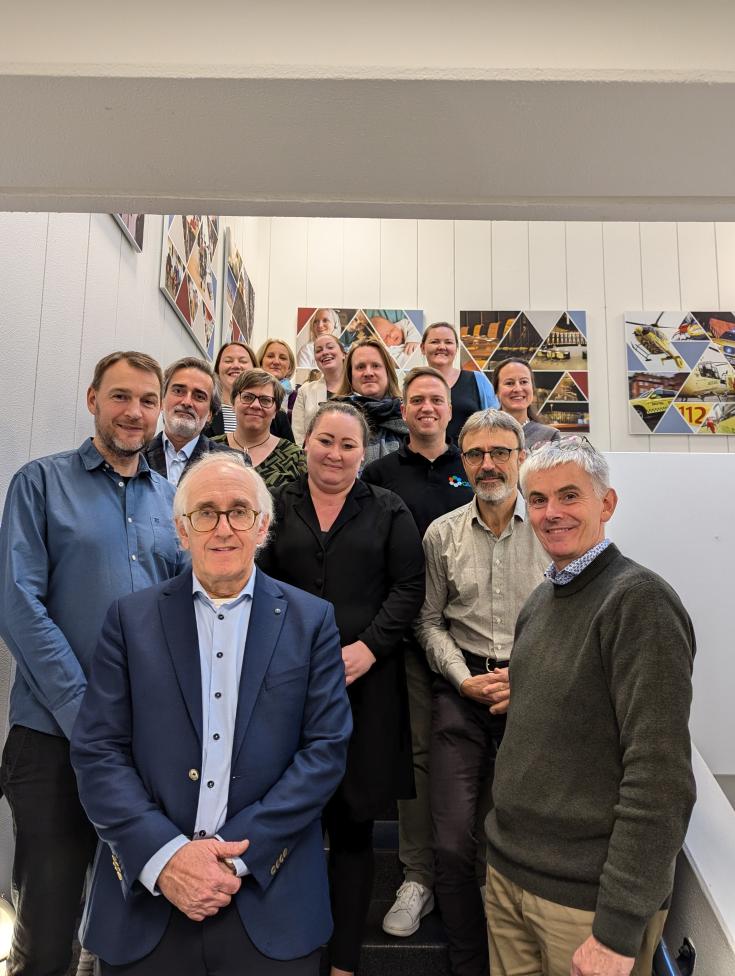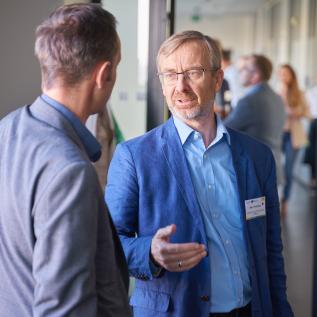New regional public transport offer in Central Denmark

On 6-7 November, the Policy Learning Platform held an onsite peer review for the region of Central Denmark, which requested input on how to increase the use of public transport in rural areas to reduce carbon emissions by reducing the number of single-occupancy cars on the road.
Peers from across Europe
Alongside Katharina Krell and Simon Hunkin, our Thematic Experts on ‘Connected Europe’, four excellent peers participated in the peer review:
-
Jenny Milne, JLM & Scottish Rural and Islands Transport Community (SRITC) (United Kingdom)
- Nuno Alexandre Cunha, Quadrilátero Urbano do Minho (Portugal)
- Roger Pyddoke, Swedish National Road and Transport Research Institute (VTI) (Sweden)
- Thorsten Haas, Main-Tauber Transport Company (VGMT) (Germany)
Some recommendations
Central Denmark is already a frontrunner in provision of rural transport, including a demand-responsive transport system, but the challenges being faced in the region are common across the continent, such as demographic decline and low population density, so there is still much to learn from others.
Several recommendations and key outcomes were established as a result of the discussions and presentations of the peers.
- Few examples of integrating new forms of mobility with public transport exist in rural areas in the EU, and those that do are mainly pilots which have been abandoned after project end;
- Community-led models can be a way forward, working with the third sector and community organisations who know the market already
- Successful integration models in rural areas often involve cars, such as on-demand system and car-sharing, for example, the models implemented in Flanders for car-sharing;
- Integrated mobility data platforms are the backbone for applications to integrate mobility options, but they are resource intense with high upfront costs and they need constant financing and time. Start as simple as possible with data that is available.
- There is a general EU-wide trend away from net contracting, as risks are too high for private operators, except for high use lines such as airport buses;
- Net contracting has not demonstrated increased ridership when used in the past. It entails higher risks for public transport operators who then require greater flexibility in the service that they offer, which may lead to the pursuit of profit at expense of answering social needs;
- Private operators do not necessarily know better than the public sector how to tackle challenges of low ridership
- Current contracts may already have enough flexibility to enable experimentation – for example the use of bonuses, competitions, shared sales commissions, or minimum requirements for comfort and onboard facilities. Changes should be trialled before changing the contractual framework entirely.
- Regions should always consider the social goals and policy targets – what are they really trying to achieve? Don’t let the technology lead the way – pick the technologies that best answer the regional need;
- Focus on users – what do they want and need? What is the added value? Participatory planning and collaboration with stakeholders can ensure systems really meet user needs;
- Collaborative approaches and systematic stakeholder involvement in the mobility planning process can harness the knowledge of transport operators, drivers and user representatives to optimise the regional transport offer.
The host’s policy challenges, and all the peer suggestions will be available shortly in the follow-up report.

“I was very grateful to have been part of this inspirational learning experience with peers and experts from across Europe! I am certain that the recommendations will help us move forward. The Peer review instrument offers such a unique format for exchange and uptake of learnings from joint challenges. We look very much forward following the next steps for our regional transport and mobility.”

“All presentations have added value as they have shown that we all face the same challenges. I have not only contributed with my knowledge, but I am also taking a lot back home.“

Peer review publication
Find more information on the methodology and experiences of previous beneficiaries in our publication.

Apply for a peer review
Start your peer review application process today and find solutions to your policy challenge with our expert and peers!


